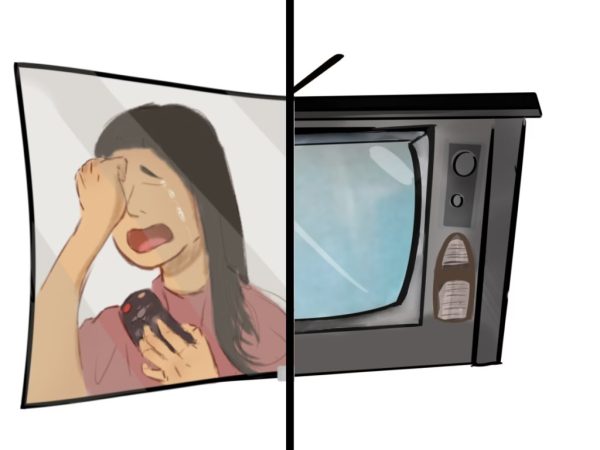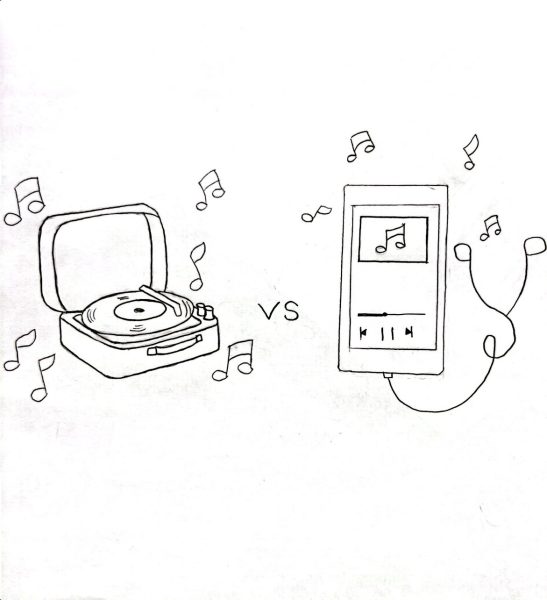Gen Z Explained: “Digital Natives”

March 22, 2021
Generation Z, a generation that grew up with the Internet at our fingertips, is the first generation of digital natives. A digital native is a person who has been exposed to new technologies since early childhood. They are surrounded by laptops, tablets and other smart devices. Digital natives also often interact and perceive the world around them via video games and social networks.
As the first generation of digital natives, Gen Z has little to no memory of a world before smartphones. When did you get wifi for the first time in your house, or access to the Internet? If you’re Gen Z, most likely at a very young age.
According to a 2018 Pew Research Center survey, 95% of 13-17 year olds have access to a smartphone, and 97% use at least one of seven major online platforms; YouTube, Instagram, Snapchat, Facebook, Twitter, Tumblr, Reddit. With teens spending so much time on social media and the internet, there is bound to be an effect, negative or positive, upon them.
Generation Z is one of the most well-educated generations. It has a collective love to search for the truth and knowledge, which stems from them having quite literally the world at their fingertips. With such vast amounts of information at their disposal, Generation Z is more pragmatic and analytical about their actions, and the information they are fed compared to previous generations. With an exposure to so much information at a young age, Gen Z is also the most racially and ethnically diverse as they heard others stories and humanized them, before they could be dehumanized in their eyes by others.
A positive outcome of being the first generation of digital natives is learning how to cross reference different sources, knowing which media outlets to trust, and being able to look at the whole picture. While with increased political polarization in our current country, this is becoming harder to do, Gen Z strives to look at all aspects of the truth. As a generation, Gen Z has also learned that abandoning the institutions or the ‘world’ like previous generations strived to do will do no good. The best thing to do is to pick apart the good and bad, and reform the bad. As digital natives, Gen Z has mastered how to utilize technology to their advantage.
While technology is a tool, it can still hurt as much as it can help. With the amount of time teens spend on social media growing, there has been a growth in anxiety and depression among them as well. While 31% of teens see social media in a positive light, 25% see it negatively, and 45% have neither a positive or negative view on it. Those who see social media negatively, say that it’s a tool for bullying, rumor spreading and warping expectations of teenagers.
Teenagers who log into social media see all of these unrealistic beauty expectations, and life expectations that are simply not possible. Constantly seeing these, warps teenagers’ perception of reality and the expectation they have of themselves. With their expectations warped, Gen Z begins to see themselves in a more negative light, adding on to their growing list of mental issues.
Along with a warped reality, Gen Z is constantly up to date on what is occuring in the news, and the political situation of the world (or their own country). This constant negative stimulus, as news outlets tend to focus more attention on the bad than the good, is not healthy for anyone, especially teenagers. Constantly being reminded of everything wrong, will leave anyone feeling helpless. Just another factor to the growing mental issues Gen Z faces as the first generation of digital natives.
Gen Z, having been the first generation to grow up in a world of technology, were shaped by it, both negatively and positively. They are the first generation to understand the importance of and strive for knowledge and the truth. They are also the first generation to suffer the backlash of a world so connected, and a medium in which reality can be so easily warped.






Victoria Juarez • Mar 25, 2021 at 8:12 pm
This was a great topic! I think the fact that we grew up alongside the internet is a fact that many older generations know, but don’t fully comprehend. I don’t think they understand how it has affected us, but you were very articulate and worded it perfectly.
Victoria Quintana • Mar 24, 2021 at 8:27 pm
This is a great story Dash! It is very professionally written and kept me interested the entire time. I think you portrayed “digital natives” very accurately 🙂
Sakshi • Mar 24, 2021 at 2:35 pm
This was very nicely written Dash. You strung every section of this piece so beautifully. Also, I loved this topic.